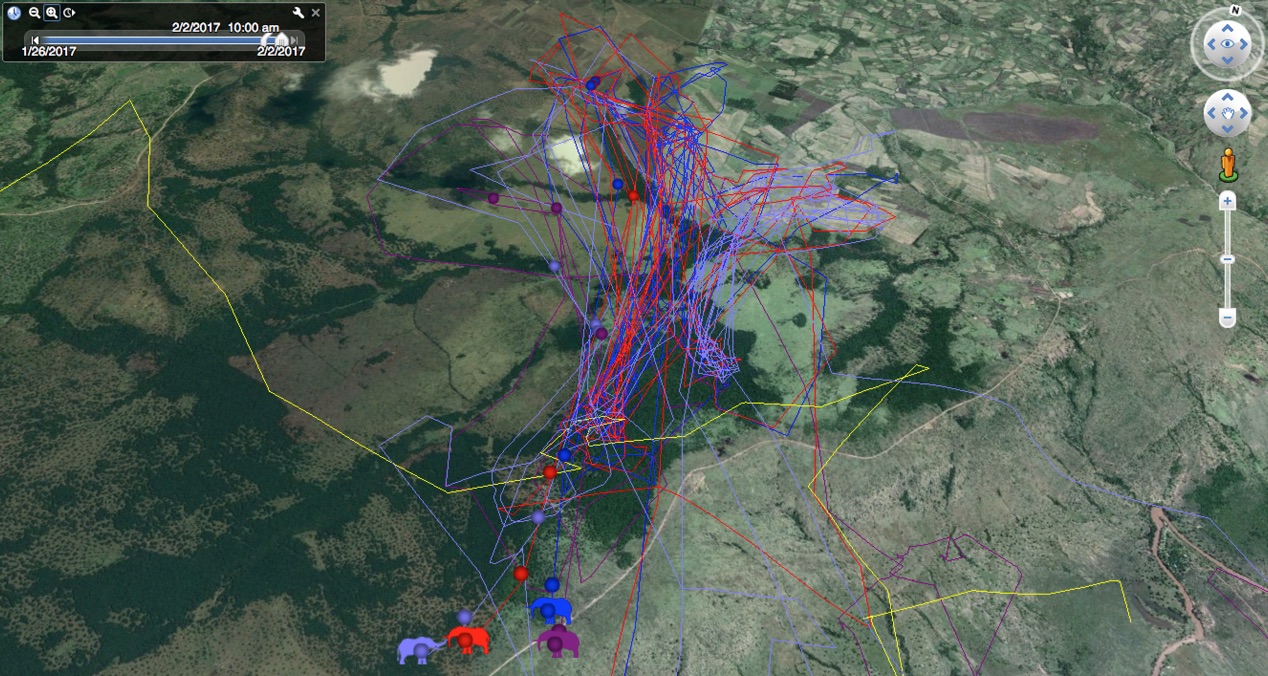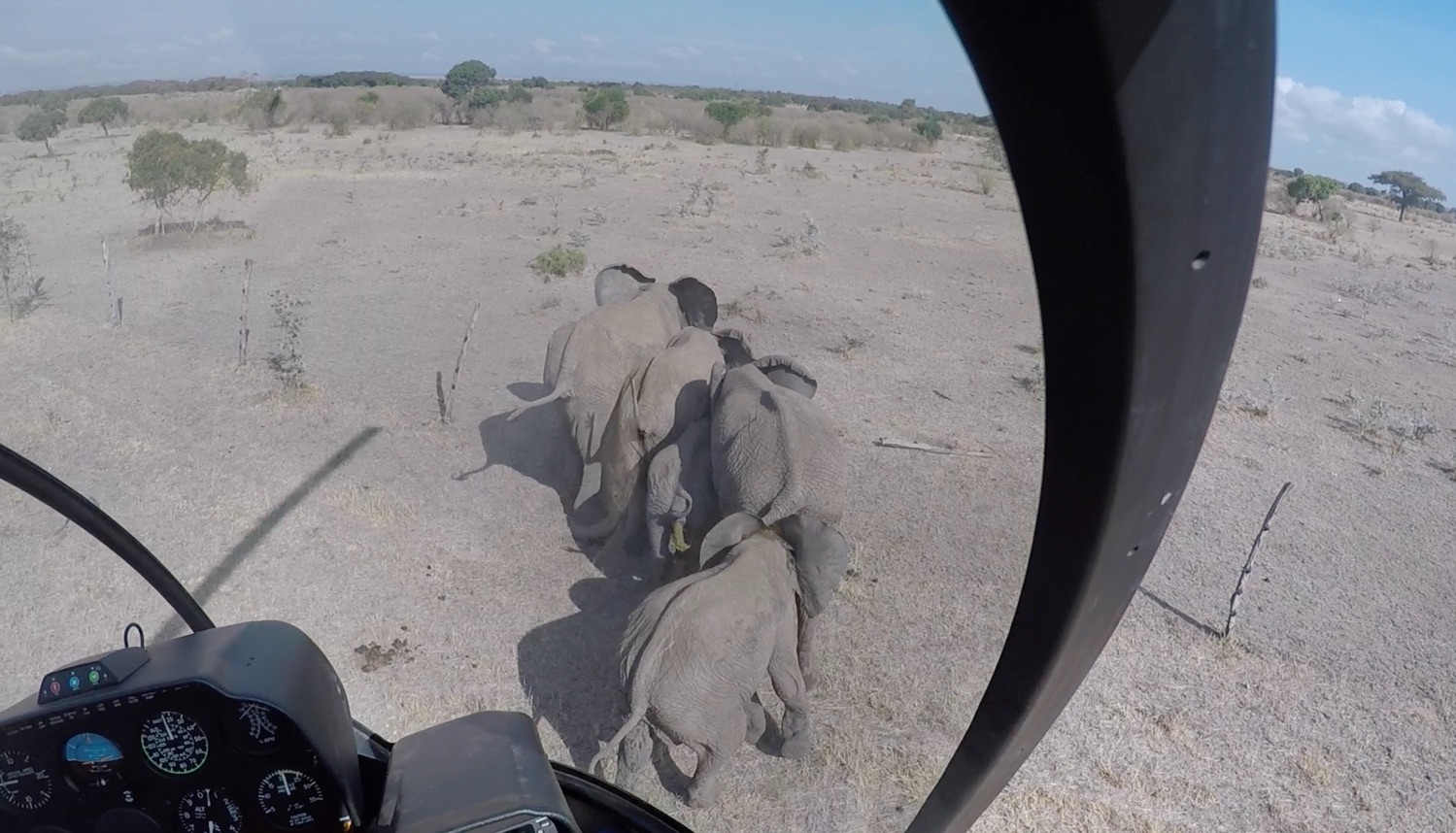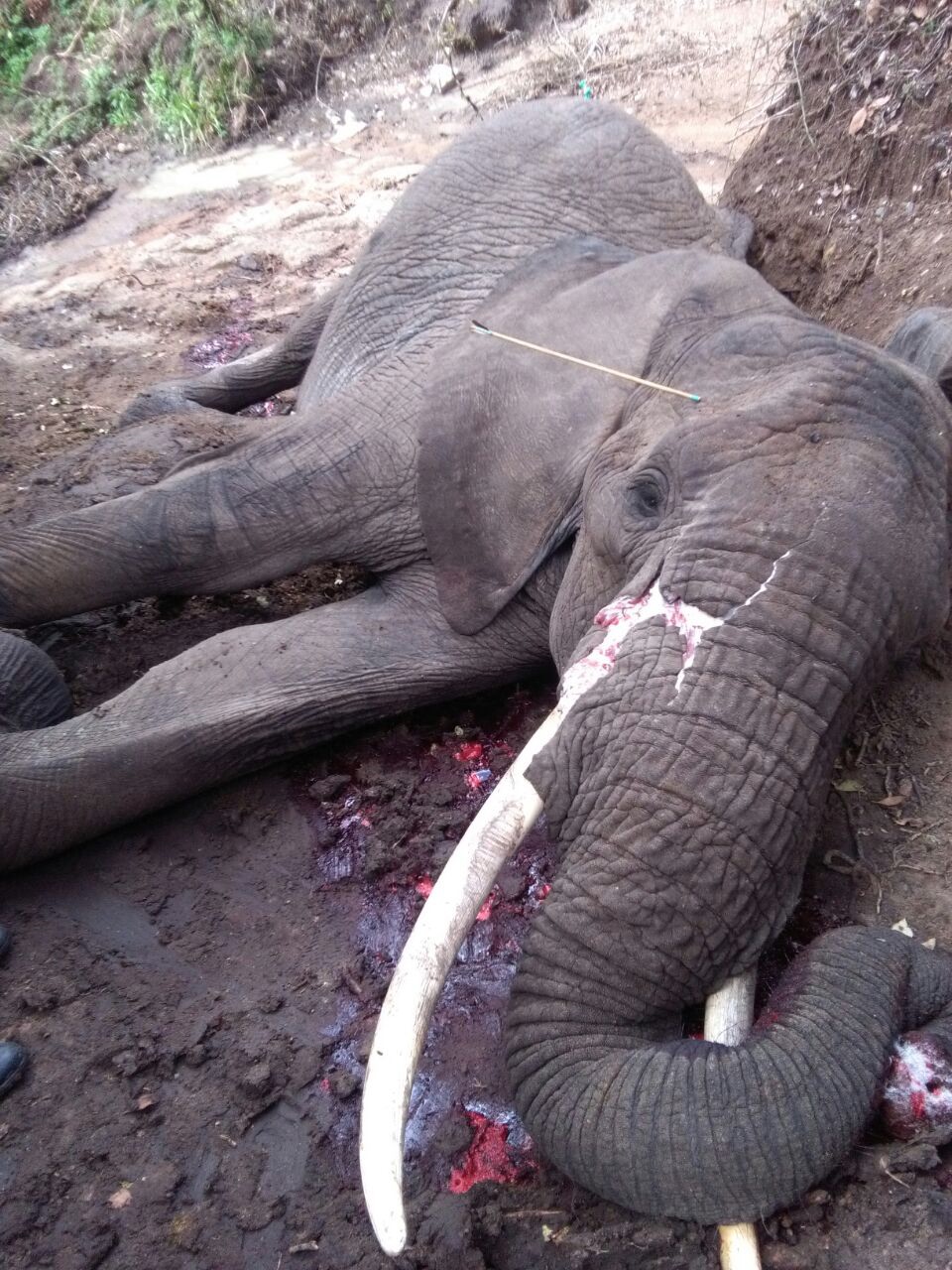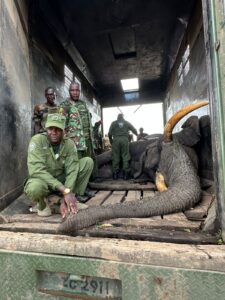Recently Mara Elephant Project’s collared elephants have been taking advantage of a tribe battle that’s as old as time. In the Kirindon area of the Transmara District in Narok County the Maasai and Kalenjin tribes have skirmishes involving spears, arrows and, more recently firearms, which have been occurring with more frequency since the end of 2016.
During the most recent battle on December 5, people were killed in the Inkenye area, a favorite battleground owned by a Maasai family but farmed by the Kalenjin community. During this battle the farmers abandoned the farms and the owner thought it was better used as an open area where enemies cannot hide thus creating the perfect scenario for a crop raiding elephant.
Four of MEP’s collared elephants and approximately 100 other elephants have been taking advantage of the lack of night guards on the maize fields.

Ivy, Fred, Kegol and Hugo staging in the Kirindon Forest.
The very large herd stages their nightly excursion in the Kirindon Forest then they streak to the farms at dusk to spend the night around the maize fields.

Ivy, Fred, Kegol & Hugo crop raiding in the Inkenye area.
The elephants seemed to be eating in peace until one night when a skirmish broke out nearby and the Kalenjin farmers opened fire on an elephant, which wandered too far into Kalenjin farms. The bull elephant managed to escape and get back to a safer area, but unfortunately died of multiple wounds. The Karen Blixen Camp Ree Park Safari helicopter was able to provide aerial coverage for the mobile team to recover the tusks.

Bull elephant killed in the Inkenye area on December 29, 2016.
MEP was able to push the elephants back into the safety of the Mara River with the use of the helicopter, but soon their hunger during this time of severe drought in the Mara, drove them back to the abandoned farms and nearby forest. Elephants will go to extreme measures to sustain themselves.
MEP responded to this by starting to plan a ground operation and mobile camp at the farm boundary. Unfortunately, after consultation with local leadership we decided this was not a good idea because most of the MEP rangers being Maasai were not too keen on the idea that would effectively be putting them in the middle of a battlefield.
So, that leaves us to do the best we can. We are currently monitoring the elephants from the air with the helicopter and the ground with ranger deployment during the day and we have not seen any seemingly wounded elephants since.


